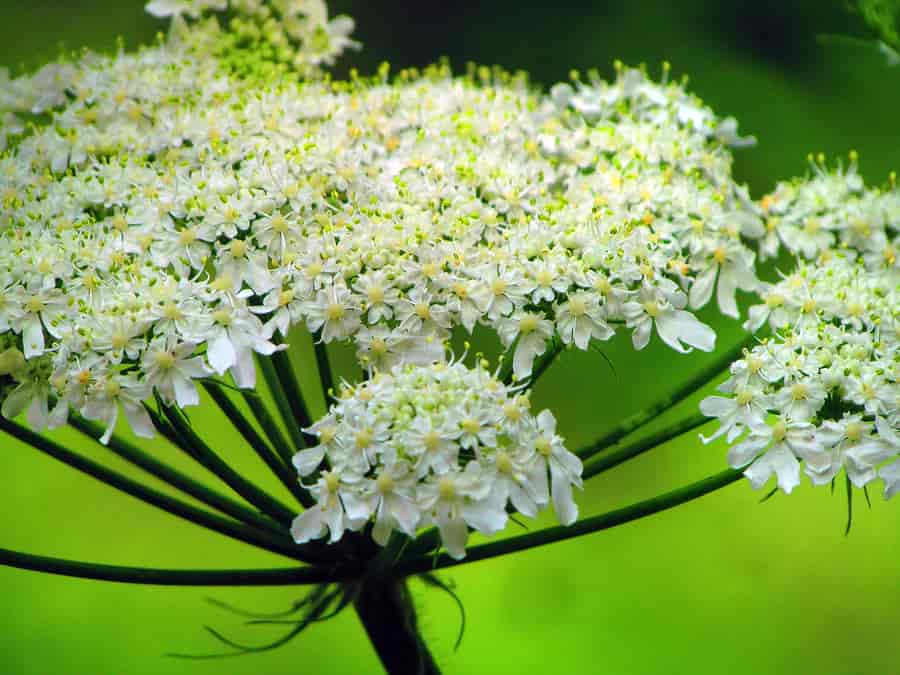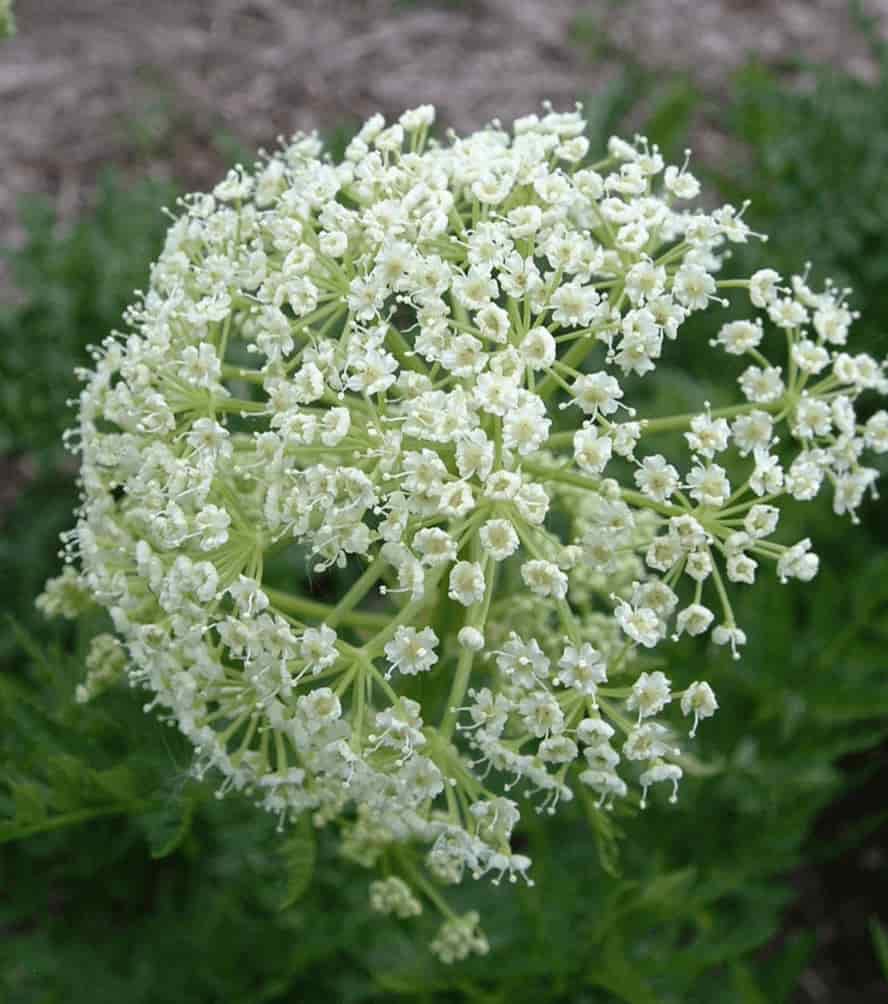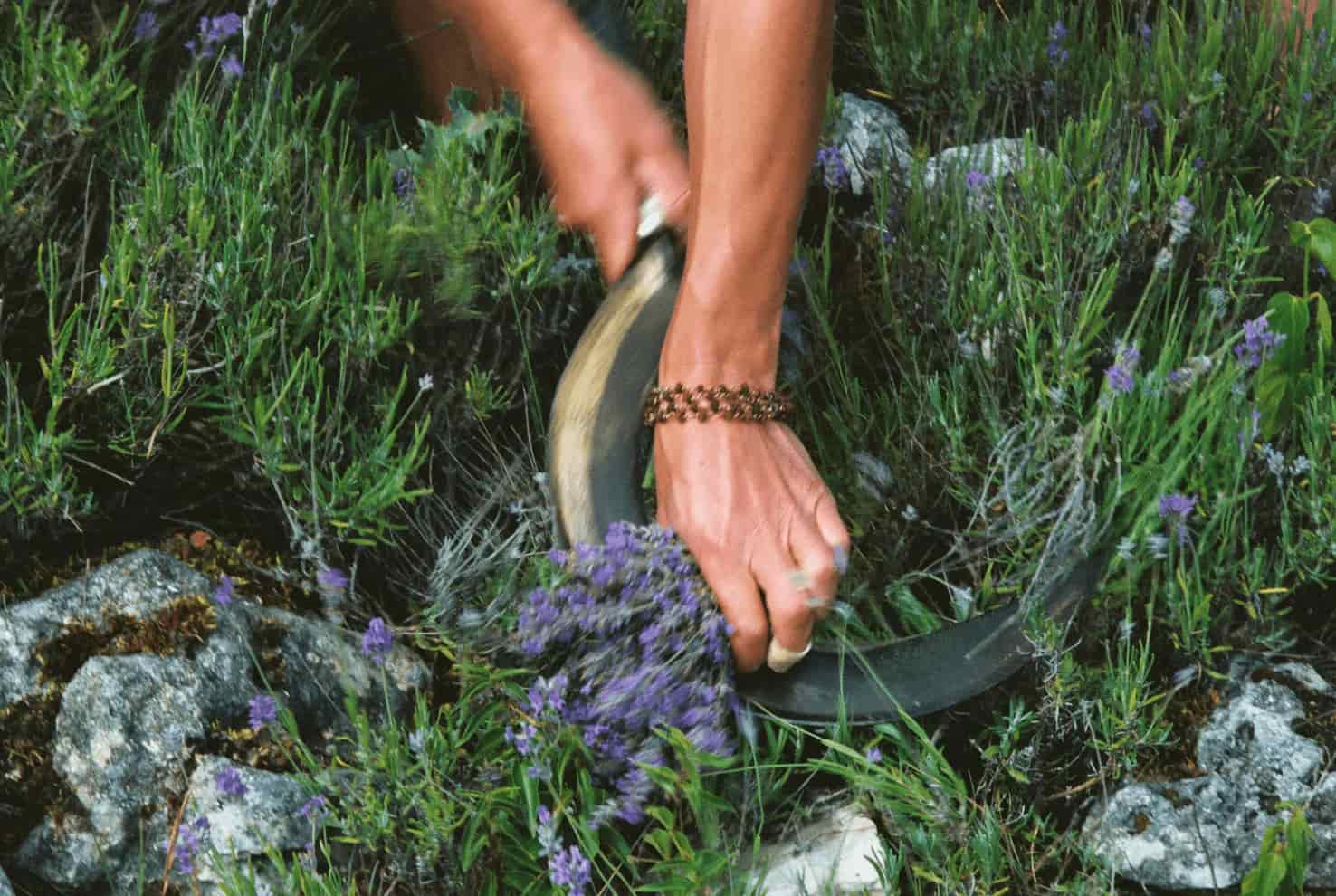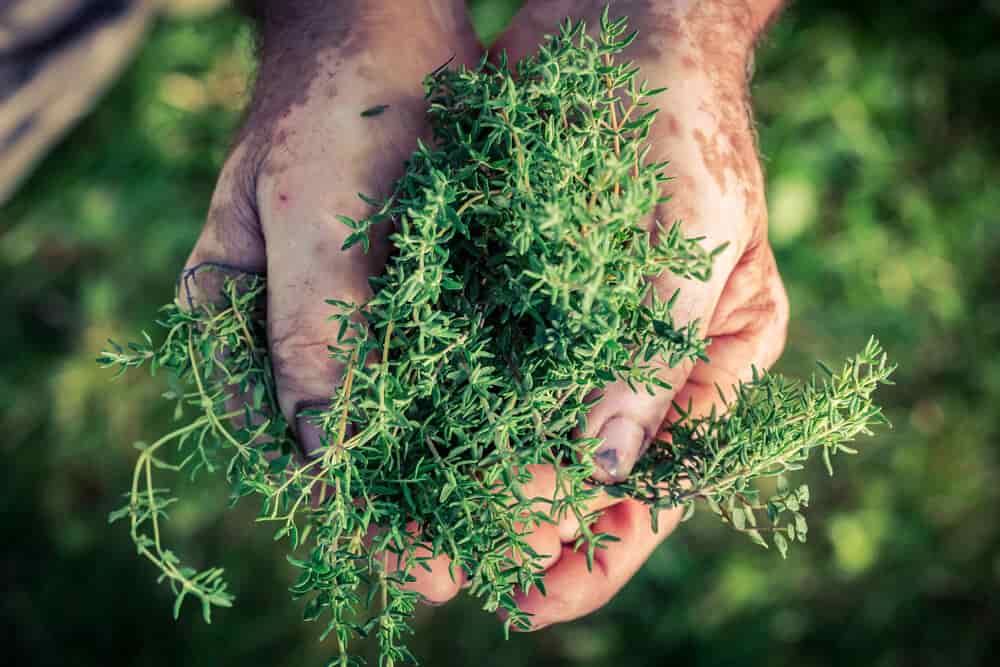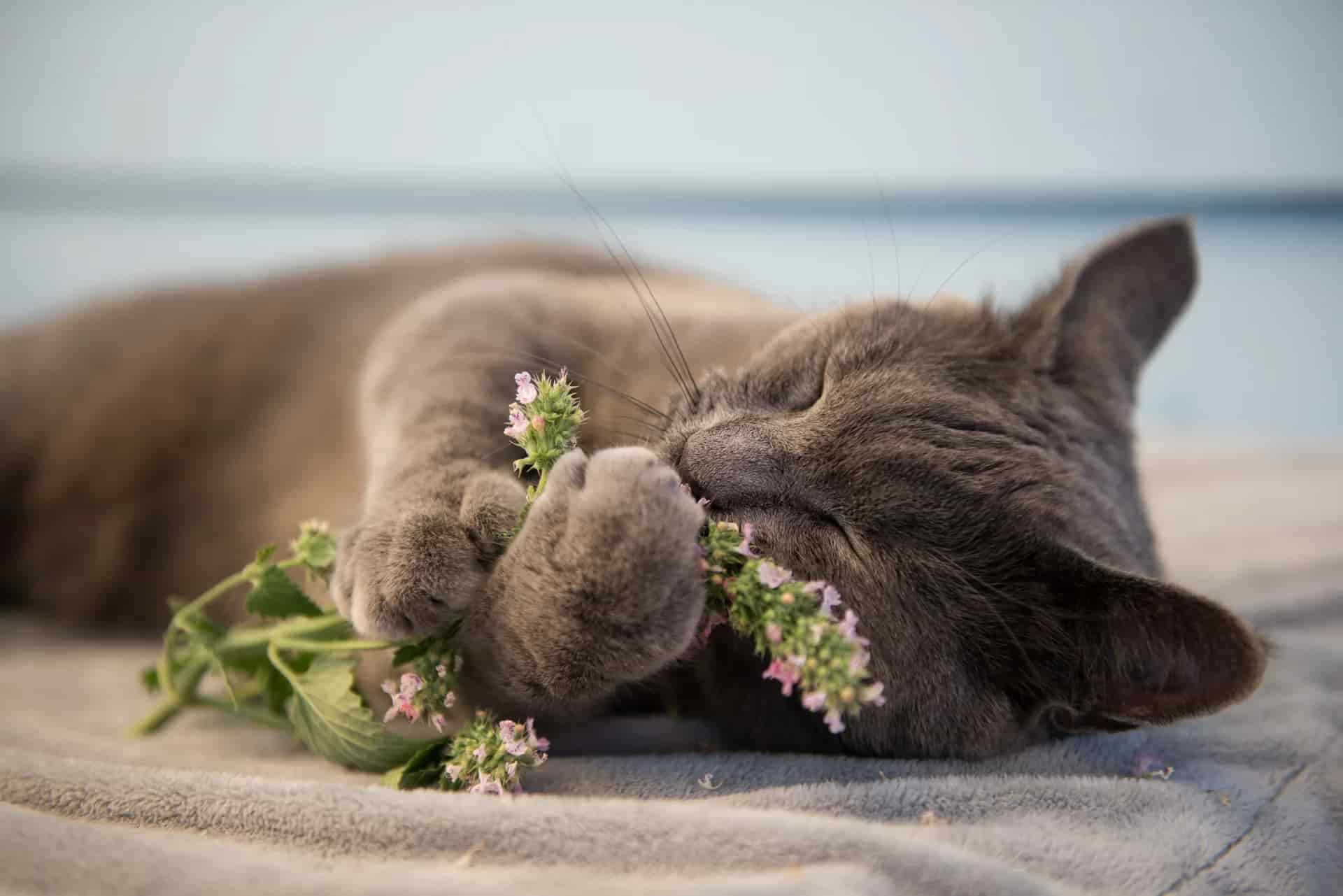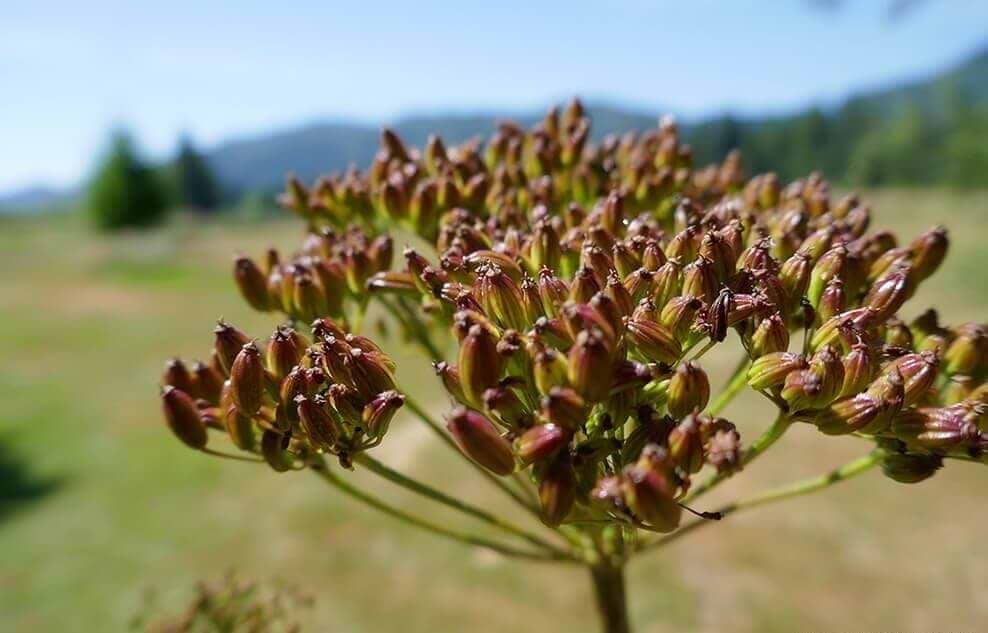Today we are over the moon to announce that we are the first national herbal company to have sustainably cultivated Osha in our formulas! This is big news for us and big news for Osha.
Here's a little bit about our journey with Osha and sustainability.
Part of what makes WishGarden special is our use of regional herbs. We started as a small, home-based business in Boulder, Colorado, and many of the herbs that made their way into our formulas were those that grew right outside our door. Even today as a nationally distributed herbal company, we still use many of our local Rocky Mountain and Southwestern herbs. One of these plants has always held a special place in our hearts — Osha.
Osha (Ligusticum porteri) is native to the Rocky Mountains, where it loves to grow in mountain meadows close to aspen trees. Osha root plays an important role in many of our formulas, including Kick-Ass Immune Activator, Serious V-Fighter, Deep Lung, and Kick-It Immune Activator For Kids. We love this powerhouse respiratory herb because it's one of the best herbs to support the mucosal lining of the respiratory tract while also supporting optimum immune function, especially when your body needs it most.
Osha is a wild harvested plant. In the beginning, Osha and its uses were not widely known outside of its native region and it was largely used by local herbalists and Native Americans, who have used it for thousands of years. Sustainable harvesting techniques were passed down, ensuring that those harvesting it knew how to do so without harming the plant populations. Over the years its popularity has grown, and now more and more people are harvesting it who have not had this traditional training. With this loss of sustainable harvesting knowledge among those harvesting most of the Osha, there is increasing concern about the impact of wild harvesting.
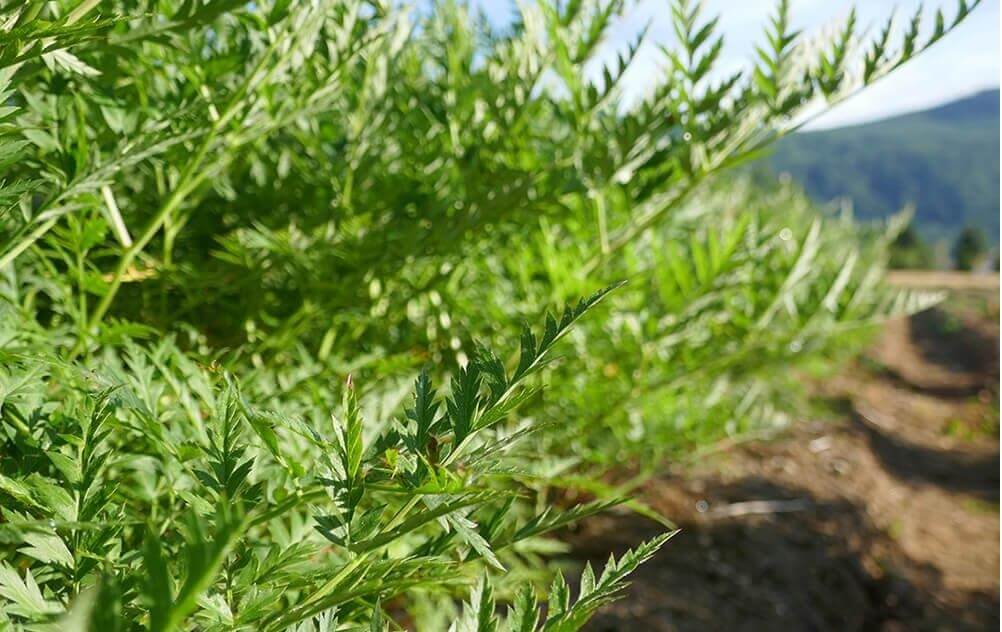
Osha is endemic to the Rocky Mountains, which means this is the only place in the world that Osha grows. While there are other Ligusticum species found throughout North America, including L. canbyi, L. grayi, L. tenuifolium, L. felicinum and all are known as Osha, Ligusticum porteri is by far the most widely used and harvested. In addition, Osha is notoriously hard to cultivate. It can be quite picky and has very specific growing conditions. Today almost all of the Osha on the market is wild harvested. All of these factors, combined with its ever-growing popularity in the herbal industry, has led many of our wild populations to be considered at risk and, in some areas, even highly threatened. Over the years, WishGarden has been working hard to support the sustainable use of Osha.
Here's some of what we've done to help protect this important plant:
Reformulation
Because of the sustainability issues in sourcing Osha we made the conscious choice in 2015 to reformulate many of our formulas containing Osha to use far less of it, including our best-selling Kick-Ass Immune Activator. We replaced it in many formulas with Lovage (Levisticum officinale), a relative with Osha with many similar constituents and properties but is incredibly easy to cultivate. In some formulas we removed it all together. All of this significantly reduced the amount of Osha we were having to source from the wild. The Osha that we do use in our formulas is always sustainably harvested.
Research
One of the issues we find with Osha is a lack of research and knowledge about the impact wild harvesting has on wild populations of Osha. WishGarden was happy to help support research conducted by Dr. Kelly Kindscher through the American Herbal Product Association's ERB Foundation on Osha. Dr. Kindscher has spent many years measuring and analyzing the impact of harvesting at different intensities Osha populations. We were fortunate enough to be able to visit the research sites and see its progress in the field. We hope this is just the start of much more research into this great plant and the impact of wild harvesting on the populations of many of our favorite herbs.
Sustainable Harvesting Guidelines
As Co-Chair of the American Herbal Product Association's (AHPA) Sustainability Committee, I've had the opportunity to help inform the creation of a pamphlet on guidelines on how to harvest Osha sustainably from the wild. With its increase in popularity, and no formal permitting process or training in place to date on how to properly harvest Osha, pamphlets like these are essential to helping those who are harvesting Osha know exactly what steps to follow to make sure they are not doing long-term damage to populations. AHPA also offers similar pamphlets for American ginseng (Panax quinquefolium) and saw palmetto (Serenoa repens).
Cultivation Efforts
Even with these pamphlets and an introduction to formal training in how to harvest wild Osha sustainably, at the rate the herbal industry is growing and the ever-growing demand for respiratory herbs, cracking the code on how to cultivate Osha is vitally important. That's why we are so excited to be working with a farmer who has finally found success in cultivating Osha. There is still much work to be done. And as with many of our valuable herbal roots, cultivation can take many years. It is our greatest hope that this is just the beginning and in the future cultivated Osha will be as common as cultivated goldenseal and ginseng are today.
Thanks for supporting us through all these years. Your support helps us to continue to support all this important work on sustainability and the herbs that take care of us.
What You Can Do
Ask questions! As a consumer, companies pay attention to the questions you are asking. If you see Osha in your favorite products, ask them where they are getting it and how they insure its sustainability. They should be able to give you answers.
Only use Osha when you really need it! There are lots of herbs that are incredibly abundant, like Dandelion and Nettles, that you can use every day and not worry about sustainability issues. But other herbs, like Osha, should only be used when they are really needed. Learn about what is the best support Osha can offer and only use it during those times.
Support organizations like United Plant Savers that are watching out for our important herbs and making sure they are around for many generations to come.
Be willing to pay a premium for sustainability. Cultivated herbs cost more to cover the overhead costs, time and expertise of the farmers. To assure enduring sustainability of herbs like Osha, consumers need to be willing to pay a bit more.
Writer Erin Smith is a clinical herbalist and ethnobotanist and has been working with medicinal plants for more than 30 years. For ten years she worked internationally with indigenous and local communities on various issues within traditional medicine, natural resource management, community-based conservation, and traditional knowledge, including for the Food and Agricultural Organization of the United Nations and as Managing Director of Global Diversity Foundation North America. She has been involved in the natural product industry for ten years and is currently Director of Science & Sustainability at WishGarden Herbs. Erin is passionate about sustainability and social responsibility in the herbal and natural product industry and is actively involved in the industry on these issues. She is a board member of the American Herbal Product Association (AHPA) and is co-Chair of AHPA's Sustainability Committee. In addition to her work with AHPA, she is an Advisory Group member for the American Botanical Council's Sustainable Herbs Program and the American Herbal Pharmacopoeia and is a member of the IUCN's Medicinal Plant Specialists Group.
For educational purposes only. This information has not been evaluated by the Food and Drug Administration. This information is not intended to diagnose, treat, cure, or prevent any disease, or sell any product.
Recommended Products
Further Reading
